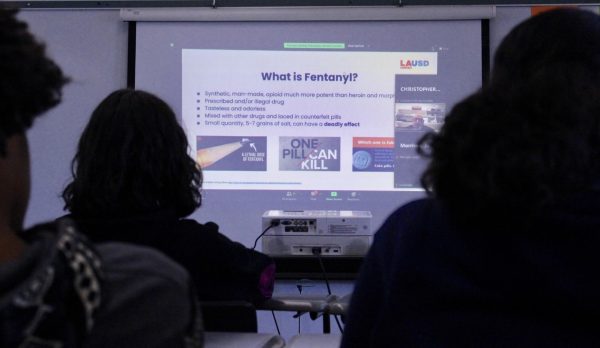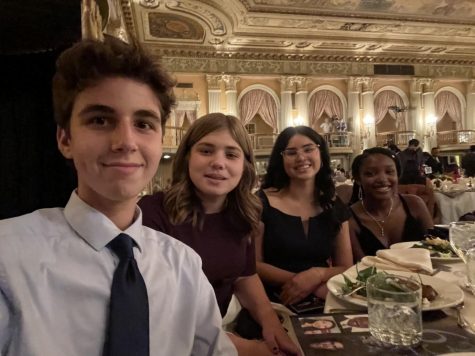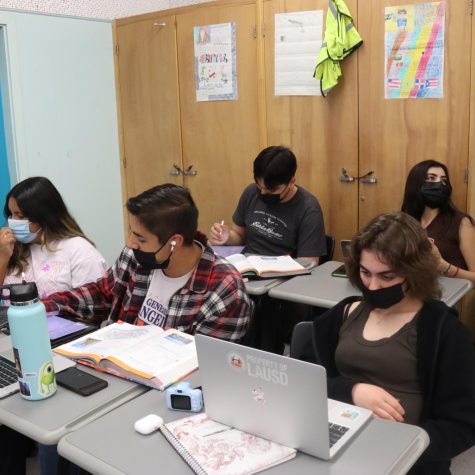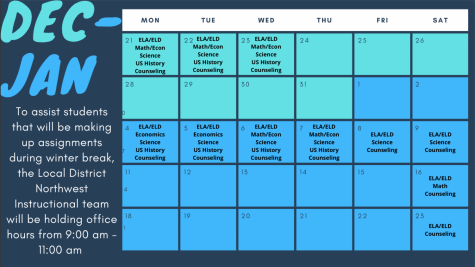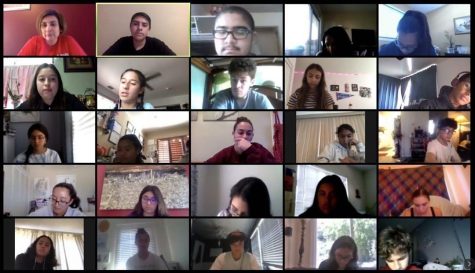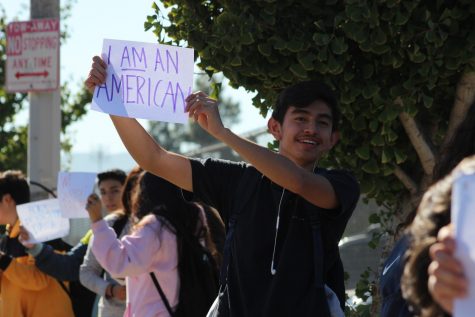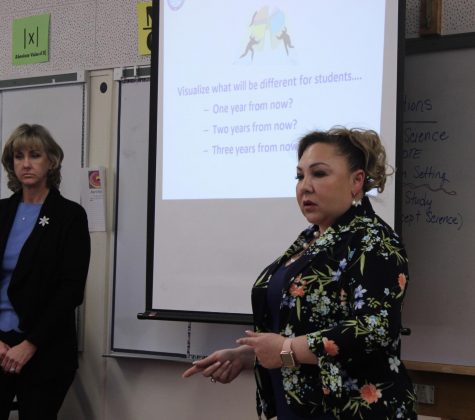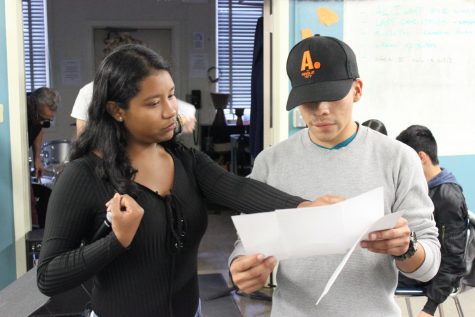Social gatherings drop to 10, Mayor Garcetti orders closure of many public sites
March 16, 2020
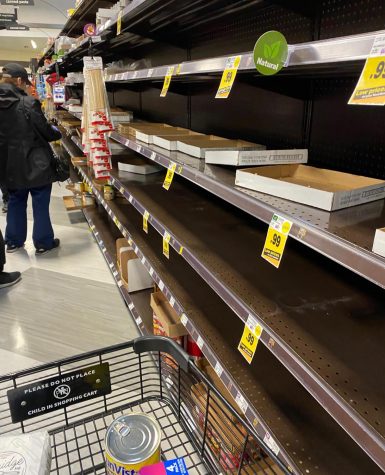
At a Ralph’s grocery store in Encino on March 16, the food isles are mainly empty as people buy groceries in panic after the Los Angeles Mayor Eric Garcetti warns the public about outside activities.
The coronavirus pandemic (COVID-19) has taken a larger control of people’s day-to-day lives in Los Angeles County.
As of today, schools resume through either an online platform or in the form of paper packets that were given to students on March 13. For students that are affected by the school closures, food banks are to open at the LA Dream Center. LAUSD will partner with the Red Cross and open 60 Grab and Go food centers on March 18.
The food centers will be open weekdays from 7-10 a.m. and each student will be given two nutritious meals to take home. All local districts contain schools where students will be able to pick up their food.
LAUSD has also partnered with PBS SoCal, KCET and KLCS-TV to provide free educational resources for students. Spectrum is also providing free broadband and WiFi to students who currently don’t have it.
Last night, Los Angeles Mayor Eric Garcetti ordered through executive action the immediate closure of gyms and entertainment sites until March 31 to prevent any spreading of the virus through these public venues. Along with this, he also ordered that restaurants temporarily close their dine-in services but are allowed to deliver. Starbucks, one of the youth’s most popular cafés, has removed chairs in their coffeehouses to avoid any sit-ins.
“In my opinion, all these things should have closed like a week ago,” senior Rosa Nava said. “If they had done it sooner, there probably would’ve been a lot (fewer) cases and it would’ve decreased the chance of it spreading as much as it has.”
To avoid exposure to the virus, Garcetti recommended that anyone over the age of 65 stay home. This would mean that some homes would now be made up of a mix of ages being home throughout these days.
“I encourage all Angelenos to help support these critical small businesses — the restaurants we love in our neighborhoods — by continuing to order from them or getting takeout or delivery,” Garcetti said in a statement.
People have avoided going out, only leaving their homes to attend grocery stores in an attempt to stock up in case the virus were to cause a nationwide lockdown just as countries like China, Spain and Italy. All grocery stores, food banks and pharmacies will remain open, according to Garcetti.
“What we do in the next couple of weeks — of listening to that social distancing, of saying no to that trip, of that gathering, of just putting things off — means the difference between whether this is weeks or months,” Garcetti said in the statement.
Not only has this created a halt in food services but a panic in housing as well. Many people aren’t working because they are being asked to stay home and avoid large crowds. For those who live paycheck to paycheck, this may create a huge stressor in their lives.
“If we do go into a nationwide lockdown I feel like it would be hard for some families to get water and food because even now there is rarely any left,” freshman Ryan Nevsky said.
In attempts to ease some of this stress, Garcetti announced a moratorium on residential evictions. As COVID-19 continues to spread, the government is trying to keep up with it and prevent it as much as possible.
In one of President Donald Trump’s most recent statements on March 16, officials recommended that social groups of more than 10 people be avoided. Originally having begun at 100, the numbers have continuously dropped since. According to Trump, the country may deal with these restrictions through July or August.
“If everyone makes this change or these critical changes and sacrifices now, we will rally together as one nation and we will defeat the virus and we’re going to have a big celebration altogether,’’ Trump said in the news conference.










